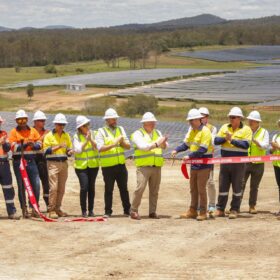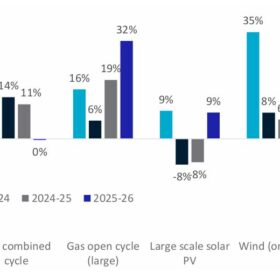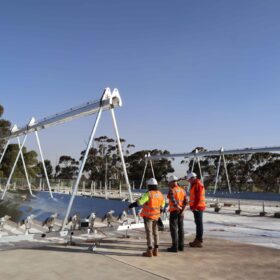The company will launch their second-generation Ping Monitor with an event at Stone & Chalk’s Lot Fourteen collaboration space, where they are residents, at 10am on Tuesday August 18.
The Ping Monitor continuously monitors the acoustic signature produced by wind turbine blades, automatically alerting operators when there is a change that indicates possible damage. This produces savings on preventative maintenance by enabling earlier and more targeted intervention to address blade damage. It also reduces downtime, increasing the profitability of windfarm operations, and make inspection and maintenance safer for workers.
“Today marks a huge step forward for Ping Services as we take the Ping Monitor to the global market,” CEO Matthew Stead said.
“Until today, we have been working with our customers on a bespoke level. With the second-generation Ping Monitor, we are ready to manufacture and export at commercial scale.
“If we got an order for 1000 second-gen Ping Monitors tomorrow, we could fill it.”
Ping Services, led by Stead and fellow acoustician Jon Cooper, has been developing the product for wind farm operators since February 2018. The IoT-enabled Ping Monitor uses complex algorithms to monitor the acoustic signature of wind turbine blades to detect damage.
The State Government backed Ping with a Research, Commercialisation and Startup Fund (RCSF) grant, having recognised the global commercial potential of their product. Ping also raised $1.3 million in a seed funding round including Australian venture capital fund Artesian.
South Australian Skills and Industry Minister David Pisoni said the commercial-ready second-generation monitor was evidence that South Australian entrepreneurship could re-shape global industries.
“The Marshall Government supports South Australian innovation and manufacturing through the Research, Commercialisation and Startup Fund.
“The Marshall Government’s investment in Matthew and Jon’s technology will now see the commercial development of this revolutionary one-of-a-kind product exported to the world.”
The Ping Monitor is currently used on wind farms throughout Australia and in several overseas markets. The company is also developing acoustic sensors to detect machinery faults in industries such as resources, rail transport and manufacturing.






By submitting this form you agree to pv magazine using your data for the purposes of publishing your comment.
Your personal data will only be disclosed or otherwise transmitted to third parties for the purposes of spam filtering or if this is necessary for technical maintenance of the website. Any other transfer to third parties will not take place unless this is justified on the basis of applicable data protection regulations or if pv magazine is legally obliged to do so.
You may revoke this consent at any time with effect for the future, in which case your personal data will be deleted immediately. Otherwise, your data will be deleted if pv magazine has processed your request or the purpose of data storage is fulfilled.
Further information on data privacy can be found in our Data Protection Policy.